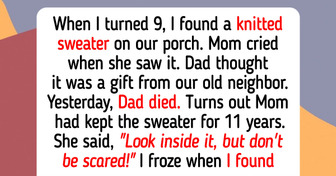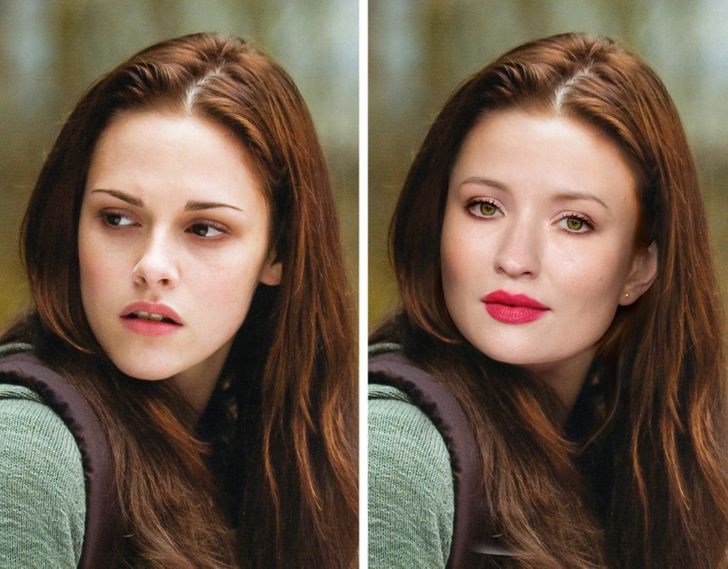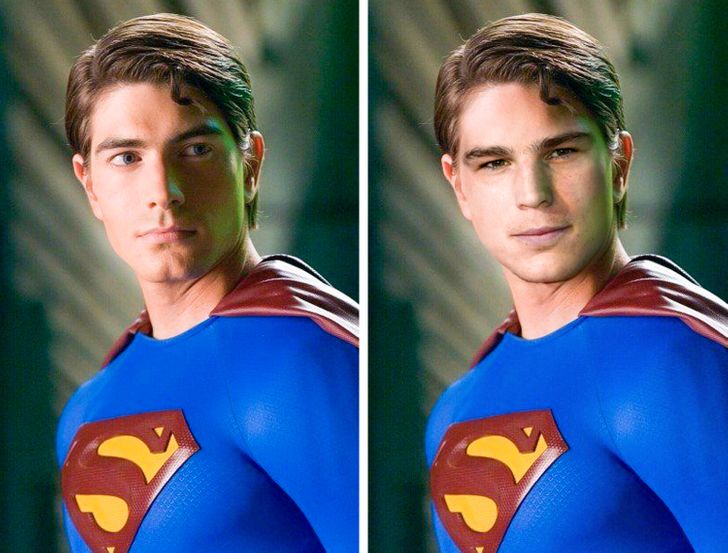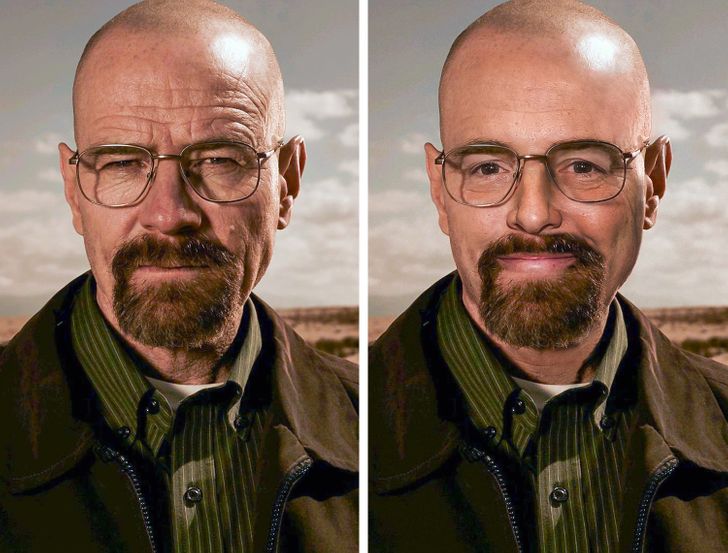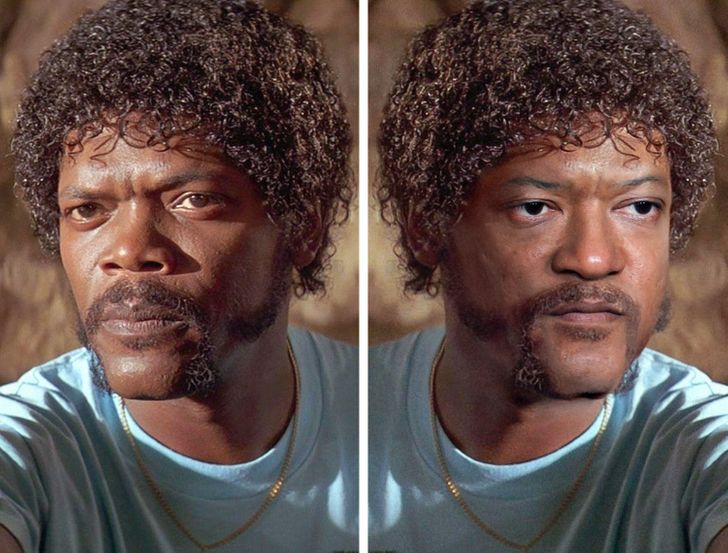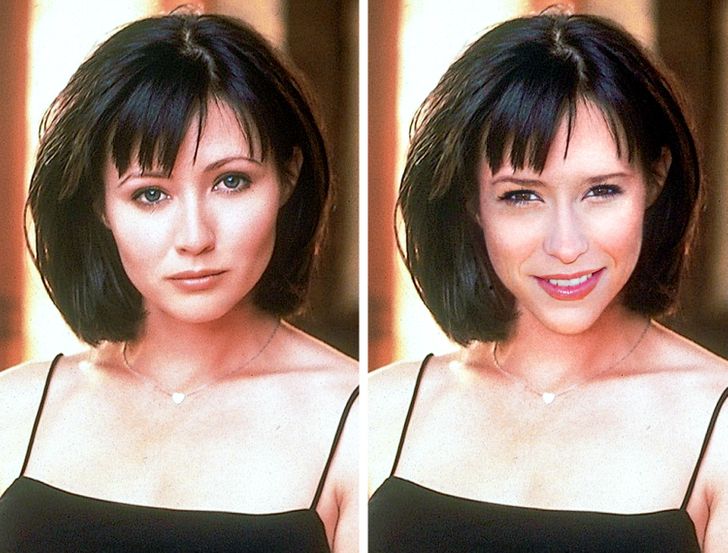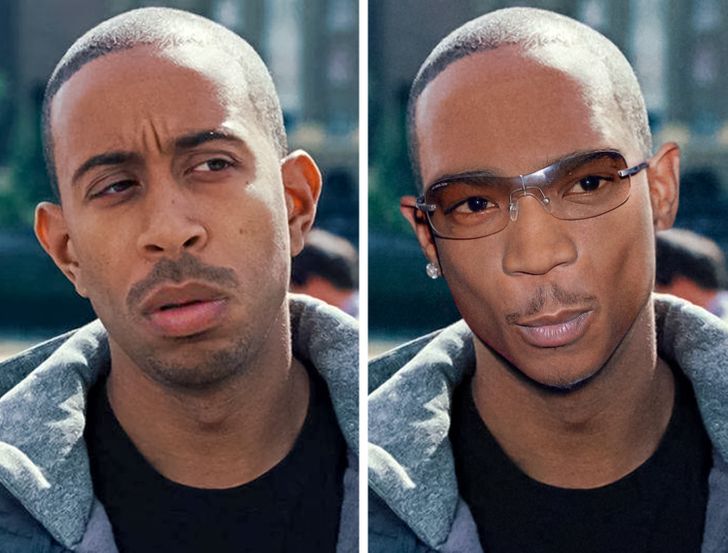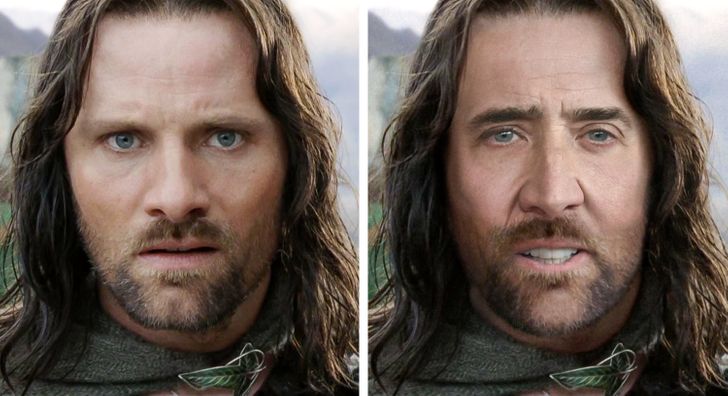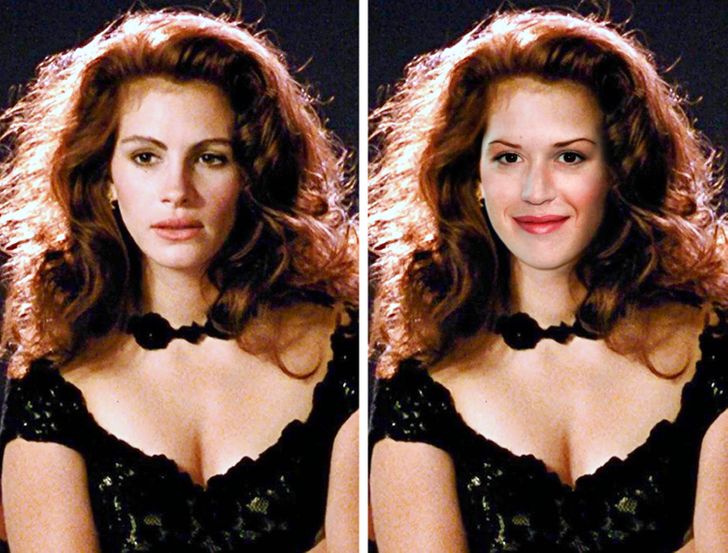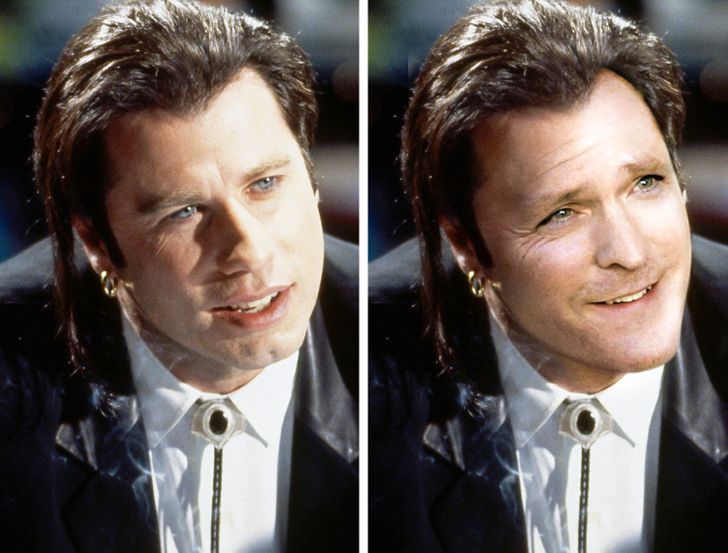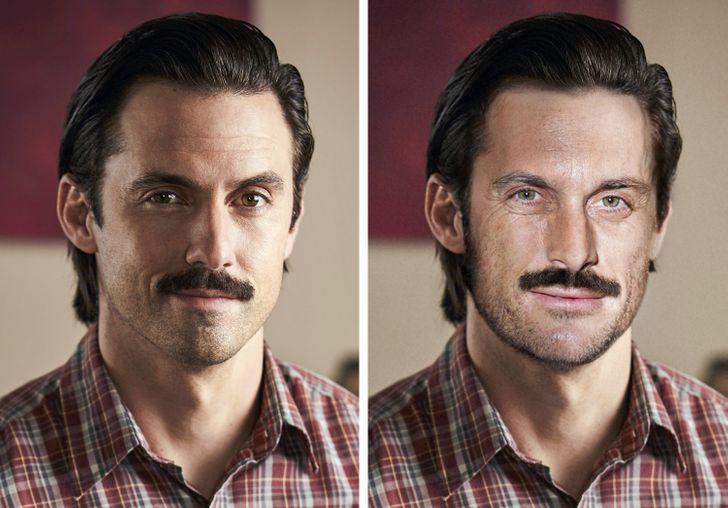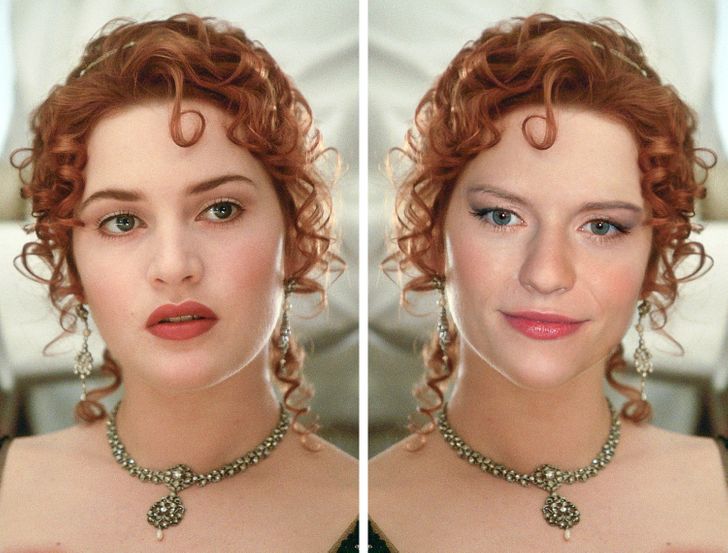I feel that Breaking Bad won't be the same if Matthew Broderick accepted the offer of playing the famous anti- hero, which is admired by everyone, including me, Walter White.
11 Actors and Actresses Who Turned Down Million-Dollar Roles
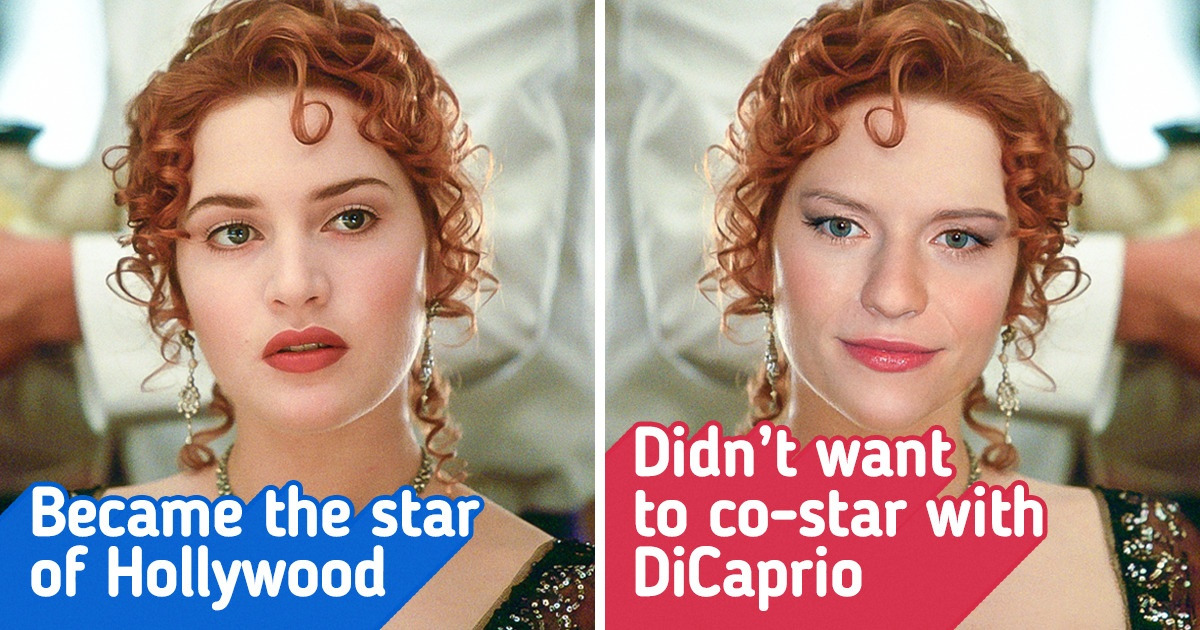
John Travolta, celebrated for his dynamic performances and magnetic screen presence, once stood at a critical crossroads that would reverberate throughout his illustrious career. The crossroads presented itself in the form of an opportunity to portray the beloved and iconic character, Forrest Gump. This role, which eventually garnered Tom Hanks critical acclaim, was initially extended to Travolta. However, in a twist of fate, Travolta made the painstaking decision to decline the role, thereby shaping the course of cinematic history.
In a parallel tale of cinematic deliberation, the esteemed Jack Nicholson found himself facing a role that demanded not just thespian prowess but cultural authenticity as well. The iconic “Godfather” trilogy, a magnum opus of the crime genre, required an actor to immerse themselves in the Sicilian heritage, bringing forth a portrayal both riveting and rooted. Nicholson, cognizant of the complexities of embodying a cultural identity distant from his own, made a choice that echoed with integrity. Consequently, the role of the enigmatic Michael Corleone found its embodiment in the remarkable Al Pacino, imprinting the character’s indelible mark on the annals of film history.
Nevertheless, the trajectories of these actors’ careers were far from linear. The whims and intricacies of Hollywood can pivot on the weight of a singular decision. Travolta, despite his magnetic performances in films such as “Saturday Night Fever” and “Pulp Fiction,” inevitably harbored the question of how his career could have metamorphosed had he embraced the challenge of portraying Gump’s heartwarming innocence and emotional journey.
Likewise, Nicholson’s contemplation of the Sicilian role leaves us pondering alternate cinematic universes. Would his unique style have breathed a different kind of life into Michael Corleone, or would it have birthed an interpretation fundamentally distinct from the nuanced portrayal that Pacino ultimately delivered? It’s within these tantalizing conjectures that the allure of Hollywood’s “what if” scenarios resides.
Bright Side, our ever-curious and insightful platform, embarked on a mission to unearth the stories of roles that actors turned down — roles that held the potential to shape not just their careers, but the fabric of cinematic storytelling itself. Delving into the labyrinthine world of auditions, scripts, and choices, the team at Bright Side unearthed a trove of narratives where decisions made and declined unfolded like a complex tapestry.
The pages of Hollywood’s history are etched with the narratives of roles declined, a testament to the enigmatic dance between opportunity and choice. Travolta and Nicholson’s respective legacies, while monumental, are also emblematic of the tantalizing “roads not taken.” Yet, in this ebb and flow of auditions and choices, a singular truth emerges — the world of cinema is an ever-evolving narrative, where decisions, both accepted and declined, collaborate to craft a tapestry that is as captivating as it is unpredictable.
Emily Browning — Bella Swan, Twilight saga
In the realm of cinematic history, it’s nearly inconceivable to envision a different face than Kristen Stewart’s in the iconic lead role of the Twilight saga. Yet, during the inception of the series, the spotlight could have shone on Emily Browning instead. Such a change might have rendered Bella Swan’s essence entirely distinct.
Curiously, Emily Browning had been contemplated for the pivotal role initially. Contemplations about this “what if” scenario inevitably arise. If Browning had embraced the role, the entire trajectory of Bella’s character might have taken an unexpected turn.
Surprisingly, Browning opted to decline the role. In later reflections, she articulated her lack of remorse for this choice. Her rationale centered on the colossal magnitude of fame and triumph achieved by the actors who ultimately assumed the roles. This fame wasn’t something she felt prepared to navigate at that juncture.
Emily Browning’s decision to step away from the Twilight saga might forever remain a tantalizing piece of cinematic speculation, serving as a testament to the intricate interplay of fate and choice in the world of entertainment.
Josh Hartnett — Superman and Batman
Josh Hartnett’s trajectory in Hollywood took an unconventional turn when he declined the opportunities to don the iconic capes of both Batman and Superman. In hindsight, he deems this decision as not just accurate, but possibly the singular right choice he’s made. His aversion to being pigeonholed into stereotype roles influenced his reluctance to delve into these high-profile collaborations.
Interestingly, despite his abstention from the superhero limelight, Hartnett secured a prominent role in the 2006 film Lucky Number Slevin. However, the subsequent decade saw him relegated to fleeting cameo appearances in low-budget productions. The 2017 film 6 Below: Miracle on the Mountain marked a more substantial role for him, but it failed to garner favor from critics, receiving a mere 22% approval rating on Rotten Tomatoes.
This uneven trajectory prompts contemplation on the complexity of show business choices. Hartnett’s evasion of the superhero archetype demonstrated his resolve to escape typecasting, yet his subsequent career fluctuations raise questions about the delicate balance between artistic integrity and commercial success. His journey stands as a testament to the unpredictable nature of fame’s ebbs and flows, inviting scrutiny into the dynamic interplay of industry, choice, and public reception.
Matthew Broderick — Walter White, Breaking Bad
When the concept for the acclaimed series Breaking Bad was in its infancy, the creators held out hope for none other than Matthew Broderick to take up the mantle of its central character. A turn of events, however, saw Broderick declining the offer, propelling the creators into a search for an alternative candidate to shoulder the protagonist’s mantle. It was Bryan Cranston who emerged as the pivotal figure to seize the opportunity, proving his mettle in the role with unwavering commitment.
Broderick’s choice to forego the Breaking Bad role led him down a divergent path, one filled with cinematic endeavors that, regrettably, failed to yield substantial success. While his name graced the credits of numerous films, the elusive victory that the creators of Breaking Bad uncovered with Cranston did not quite replicate itself for Broderick. Presently, Broderick’s presence is more auditory than visual, as his talents find resonance in the realm of voice-overs for animated characters. A notable example is his contribution as the voice behind Simba the lion, which imparts its animated embodiment with the distinct timbre of Broderick’s voice.
The divergence in career trajectories between Broderick and Cranston offers a poignant reflection on the transient nature of opportunities in the entertainment industry. The decision to turn down Breaking Bad, a choice made with its own rationale at the time, inadvertently steered Broderick’s course toward the realm of voice acting. This shift, while it might have diverged from expectations, demonstrates the versatility of talent and the myriad ways in which it can find expression.
As audiences hear Broderick’s voice intertwined with animated characters, it serves as a reminder of the multifaceted nature of an artist’s journey. Broderick’s vocal contributions infuse life into characters, showcasing the enduring ability of talent to transcend mediums and the cyclical nature of artistic evolution. In the grand tapestry of entertainment, each thread weaves a unique narrative, and Broderick’s path, marked by a fateful decision and a distinct vocal resonance, remains an intriguing strand within the larger fabric of creative expression.
Laurence Fishburne — Jules Winnfield, Pulp Fiction
For his fans, Laurence Fishburne has remained Morpheus from The Matrix for many years though the actor had every chance to not let this situation happen. When Quentin Tarantino was working on Pulp Fiction, he invited Laurence to play the role of Jules Winnfield, but he turned the offer down.
It was Samuel L. Jackson who became Jules and was awarded a BAFTA for the Best Film Actor in a Supporting Role.
In the tapestry of cinematic history, Laurence Fishburne’s portrayal of Morpheus in The Matrix endures as an indelible image, a role that has resonated deeply with his fans over the years. However, it’s intriguing to note that Fishburne was not destined to be solely synonymous with the enigmatic Morpheus; he held the power to alter this trajectory. During the genesis of Quentin Tarantino’s iconic film Pulp Fiction, Fishburne was extended an invitation to step into the shoes of Jules Winnfield. Curiously, he opted to decline this offer, setting the stage for a chain of events that would shape his career.
In the vacuum created by Fishburne’s choice, the path of cinematic history swerved. Samuel L. Jackson, with his magnetic presence and unmistakable charisma, emerged as the chosen vessel for the role of Jules Winnfield. Jackson’s performance in the role not only added another feather to Tarantino’s cap but also garnered him a coveted BAFTA award for Best Film Actor in a Supporting Role. This accolade affirmed Jackson’s ability to imbue his characters with depth and resonance, echoing through the corridors of film history.
The interconnectedness of choices and opportunities in the entertainment realm often reverberates in unforeseen ways. Fishburne’s decision to decline the role in Pulp Fiction, a choice influenced by myriad factors, inadvertently set him on a course where Morpheus would loom large in his career. Yet, this decision simultaneously paved the way for Jackson’s ascent as Jules, a role that would leave an indelible mark on his cinematic journey.
The narrative serves as a reminder that within the mosaic of cinema, each role assumed or rejected contributes to the broader tapestry. The essence of an actor’s journey lies not only in the roles they embrace but also those they relinquish. Fishburne’s legacy as Morpheus endures, a choice that shapes his narrative, while Jackson’s BAFTA-winning portrayal of Jules underscores the significance of seizing opportunities when they arise, as they can lead to unexpected triumphs.
Jennifer Love Hewitt — Prue Halliwell, Charmed
When Shannen Doherty bid farewell to the Charmed project after the culmination of its third season, a conundrum unfolded for the creators. The enigma of Prue Halliwell’s future role loomed large. Seeking a suitable successor, Jennifer Love Hewitt was extended an invitation to step into the bewitching world of Charmed. However, the role, like a delicate potion, was declined by Hewitt, leaving the creators still in search of the perfect ingredient.
In a twist of fate, the overture was extended to Tiffani Thiessen, yet the mystical allure of Prue’s character failed to captivate her as well. The role seemed elusive, slipping through the fingers of not one, but two talented actresses. Ultimately, a decision was reached: Prue Halliwell’s presence would be erased from the tapestry of the series, a blank space where once a powerful enchantress resided.
In the more recent annals of Hollywood, Jennifer Love Hewitt has undergone a metamorphosis in her career. Transitioning from the realm of feature films, she has embraced the episodic narratives of television series. Her presence graced projects such as Criminal Minds and Hot in Cleveland, marking a shift that echoes her earlier encounter with Charmed. Today, her image is etched in the dramatic landscapes of 9-1-1, a testament to the enduring capacity for reinvention within the world of entertainment.
The saga of Prue Halliwell’s vacancy remains a whispered tale of missed opportunities and uncharted paths. Hewitt’s journey, however, showcases the dynamic nature of an artist’s evolution. As roles transition from big screens to small screens, a tapestry of characters is woven, each thread a testament to the multifaceted artistry that defines Hollywood. Just as the allure of the mystical world in Charmed was not fully realized, the future chapters in the tale of Jennifer Love Hewitt continue to unfold, an unfolding narrative that captivates audiences across episodic landscapes.
Ja Rule — Tej Parker, The Fast and the Furious saga
In the early stages of the Fast and the Furious franchise, rapper Ja Rule secured a brief yet notable cameo appearance in the inaugural installment. His presence added a touch of musical star power to the cinematic universe revolving around high-octane action and car culture. However, as the series continued to evolve, the narrative surrounding Ja Rule’s involvement took a divergent turn.
As the sequel, 2 Fast 2 Furious, embarked on production, director John Singleton saw potential in expanding Ja Rule’s role, envisioning a deeper engagement within the cast. This proposition, however, met with resistance from the rapper. The refusal to take on a more substantial part ignited a conflict of artistic visions. Singleton’s assertion that Ja Rule was “out of touch” with the evolving franchise dynamics highlighted the contrasting perspectives between director and actor.
The atmosphere of creative tension was palpable, with Singleton candidly admitting he had to doggedly pursue Ja Rule for a decision. Ultimately, the rapper chose to forego a significant payday — half a million dollars — while simultaneously nurturing his aspirations in the acting sphere. Ja Rule’s subsequent forays into acting, however, didn’t yield the success he might have envisioned. Collaborations with various directors in projects like “Half Past Dead” and “Don’t Fade Away” failed to gain critical acclaim or leave a lasting impact. The IMDb scores for these movies, 4.6 and 4.9 respectively, underscore the lukewarm reception they received.
The paths of fate diverged, casting contrasting lights on Ja Rule and his fellow rapper-turned-actor, Ludacris. While Ja Rule’s acting ventures floundered, Ludacris seized the opportunity that was initially offered to Ja Rule. Ludacris stepped into the role of Tej and seamlessly integrated himself into the Fast and Furious universe. With each installment, his presence grew, eventually encompassing even the latest chapter in the saga, “F9.”
Ludacris’s consistent participation across the franchise stands as a testament to the impact of a singular choice. His character evolved and persevered, while Ja Rule’s trajectory took a less triumphant course. The diverging fortunes of these two artists underscore the multifaceted nature of the entertainment industry, where decisions and opportunities intersect to shape the unfolding narrative of careers. In the end, the Fast and Furious series not only revs up adrenaline but also serves as a lens through which the ebb and flow of show business dynamics come into sharp focus.
Nicolas Cage — Aragorn, Lord Of The Rings trilogy
Nicolas Cage’s potential role as Aragorn I in the Lord of the Rings trilogy is a tale of a missed opportunity that could have altered the course of cinematic history. Cage’s personal reasons, notably his reluctance to be away from home for an extended duration, led him to decline the role. This pivotal choice paved the way for Viggo Mortensen to don the mantle of the first High King of the Reunited Kingdom, subsequently catapulting him into global recognition and acclaim through his portrayal.
Viggo Mortensen’s portrayal of Aragorn became a cornerstone of the epic fantasy saga, etching his name into the annals of cinematic legends. The series’ monumental success reverberated worldwide, solidifying Mortensen’s status as an iconic figure within the realm of fantasy and adventure films.
In contrast, Nicolas Cage’s career in recent years has been marked by an eclectic array of roles, often sparking polarizing reactions from critics and audiences alike. Within a short span of time, he has graced multiple film projects, yet these roles have led to mixed reviews and fervent commentary from detractors. The transition from his earlier celebrated performances to this phase of his career has left both haters and longtime fans puzzled.
Nicolas Cage’s enduring presence in the media landscape remains a testament to the complexity of artistic trajectories. His choices, both the opportunities embraced and the roles declined, have shaped the mosaic of his career. While the role of Aragorn could have rewritten his narrative, his career continues to unfold in its own distinctive direction, leaving an indelible mark on the tapestry of cinema.
Molly Ringwald — Vivian Ward, Pretty Woman
The journey to casting Julia Roberts as Vivian in Pretty Woman was a process marked by multiple actresses passing on the opportunity, ultimately leading to the iconic role that helped define Roberts’ Hollywood legacy. Prior to Roberts’ approval, a roster of talented actresses, including Molly Ringwald, Meg Ryan, Michelle Pfeiffer, and Valeria Golino, among others, had turned down the chance to portray Vivian. Among them, Molly Ringwald’s decision to decline the role resurfaced in hindsight, as she admitted to feeling regret over her choice.
In an era where “Pretty Woman” became a cinematic sensation, the impact of casting decisions took center stage. Julia Roberts’ embodiment of the vivacious and spirited Vivian propelled her into the spotlight, solidifying her status as a prominent figure in the entertainment industry. The role not only garnered acclaim for Roberts but also established her as a recognizable Hollywood star, with the portrayal of the character significantly contributing to her subsequent fame.
Molly Ringwald’s career trajectory, on the other hand, experienced a distinctive shift. In the ’90s, her visibility in the entertainment realm dwindled, with roles in lesser-known films and series marking a departure from her earlier prominence. While the choice to forgo the role of Vivian might have appeared justified at the time, the resurgence of “Pretty Woman” as a cultural touchstone inevitably raised questions about missed opportunities.
The world of cinema often unfurls a narrative where choices influence destinies, and the tale of Molly Ringwald underscores the significance of pivotal career decisions. The allure of a role like Vivian in “Pretty Woman” exemplifies how the right character at the right time can shape the trajectory of an actor’s journey. The allure of the Hollywood limelight, the interplay of roles and recognition, is ever-present, and casting choices can carry far-reaching implications for the fortunes of those who stand before the camera.
The contrasting paths tread by Julia Roberts and Molly Ringwald illuminate the intricate dynamics of the entertainment industry. While Roberts soared to stardom with her portrayal, Ringwald’s subsequent career trajectory underscores the unpredictability of fame. In the end, the decisions made by actors, both the opportunities seized and the roles declined, become threads woven into the fabric of their legacies. “Pretty Woman” remains a touchstone not only for cinematic history but also for the intricacies of choices and consequences within the enigmatic world of show business.
Michael Madsen — Vincent Vega, Pulp Fiction
The iconic dance sequence between Uma Thurman and John Travolta in Quentin Tarantino’s Pulp Fiction is etched into cinematic history. Yet, this memorable moment could have taken a different form had the role of Vincent Vega not gone to John Travolta. The initial choice for the role was Michael Madsen, a decision that could have potentially altered the chemistry of the film. However, Madsen’s commitment to another project, Wyatt Earp, a Western film, led him to turn down the role.
At the time, Madsen’s decision seemed logical, given his involvement in Wyatt Earp. However, in a twist of fate, Tarantino’s black comedy Pulp Fiction emerged as a far greater success than Wyatt Earp. The latter film received five Golden Raspberry nominations, winning two of them — a stark contrast to Pulp Fiction’s resounding acclaim. Notably, Wyatt Earp did receive an Oscar nomination for Best Cinematography, showcasing a redeeming aspect within its mixed critical reception.
Michael Madsen, reflecting on his past choice with a touch of humor, acknowledges the improbability of anyone being happier to witness his portrayal of Vincent over Travolta’s. Despite having participated in a string of low-budget productions for an extended period, Madsen has recently embarked on a new chapter in his career, engaging with projects from Russian cinema such as Velvet Revolution, The Way, The 5th Execution, and more. This newfound direction underscores his adaptability and willingness to explore fresh horizons.
Beyond his cinematic endeavors, Madsen has ventured into a distinct realm of creative expression — poetry. The actor has published several books containing his own poetic works, showcasing a side of his artistry that might have remained hidden if not for his willingness to embrace new forms of expression.
The unfolding narrative of Madsen’s career exemplifies the multifaceted nature of artistic evolution. The entertainment industry is marked by twists of fate, where choices shape trajectories and unforeseen opportunities arise. Madsen’s transition from a potential role in Pulp Fiction to his present-day involvement in Russian cinema and poetic endeavors showcases the dynamic nature of creative exploration.
In the grand tapestry of Hollywood, each artist’s journey is a unique composition, woven through choices, opportunities, and adaptations. The legacy of Pulp Fiction’s dance sequence serves as a reminder of the delicate interplay between casting choices and the resulting cinematic magic. As Madsen’s path continues to unfold, his experiences stand as a testament to the enduring spirit of reinvention within the realm of entertainment.
Oliver Hudson — Jack Pearson, This Is Us
Oliver Hudson’s potential ascent to the role of Jack Pearson in the series This Is Us hinged on a pivotal choice that ultimately shaped the course of his career. In a twist of fate, Hudson’s decision to embark on a 10-day fishing expedition took precedence over the possibility of starring in the show. This decision marked a turning point, leading to the casting of Milo Ventimiglia as Jack Pearson, a role that garnered numerous Emmy nominations for his poignant portrayal.
The significance of casting choices in the entertainment industry is underscored by Hudson’s missed opportunity. Ventimiglia’s embodiment of Jack brought depth and resonance to “This Is Us,” resulting in a series that resonated deeply with audiences and critics alike. His nominations for prestigious awards further validated the impact of his performance.
While Oliver Hudson didn’t seize the role of Jack, his journey unfolded on a different trajectory. He found his primary canvas for expression in the sitcom Rules of Engagement, where he was a mainstay for seven seasons. The role showcased Hudson’s comedic talents and solidified his presence within the television landscape.
The contrasting paths of Hudson and Ventimiglia highlight the delicate balance of decisions in an actor’s career. Opportunities embraced or relinquished can redefine their narrative, steering them in unanticipated directions. Hudson’s choice, influenced by personal pursuits, reverberates through the industry’s history, while Ventimiglia’s ascent to Emmy-worthy heights underscores the transformative power of the right role.
In the broader scope, the entertainment industry is a mosaic of choices and their ensuing consequences. Each actor’s journey is shaped by these pivotal moments, and the legacy of “This Is Us” remains a reminder of the intricate interplay between casting decisions and the narratives they help craft. As the stories of Oliver Hudson and Milo Ventimiglia unfold, they become threads woven into the ever-evolving tapestry of show business, showcasing the beauty and complexity of artistic paths.
Claire Danes — Rose DeWitt Bukater, Titanic
Kate Winslet’s portrayal of Rose in Titanic catapulted her to global stardom at just 22 years old, earning her an Oscar nomination and a prominent place in Hollywood. However, the trajectory of this iconic role might have been quite different. Originally, Claire Danes was approached for the part but declined, citing exhaustion and waning interest in recent projects. Danes also expressed hesitance to act alongside Leonardo DiCaprio, given their previous collaboration in William Shakespeare’s “Romeo + Juliet.”
The ripple effect of these choices became evident as Winslet’s career soared while Danes pursued alternative paths. Winslet’s role in “Titanic” secured her fame and acclaim, marking a turning point in her journey. In contrast, Danes later found success in the long-running series “Homeland,” which concluded in April 2020. However, her foray into feature films yielded mixed results, with few awards or positive reviews. Recent films like As Cool as I Am and A Kid Like Jake garnered modest IMDb ratings of 5.8 and 5.4, respectively.
The divergent paths of Winslet and Danes reflect the complex nature of the entertainment industry. Choices made early in an actor’s career can have far-reaching consequences, as seen with Winslet’s meteoric rise. Danes’ journey took her down a different route, marked by successes in television but tempered by a lack of critical acclaim in the film realm.
As the stories of these two actresses continue to unfold, they remain emblematic of the multifaceted nature of Hollywood’s offerings. The legacy of “Titanic” endures, with Winslet’s performance etched into cinema history, while Danes’ enduring presence in “Homeland” attests to her versatile talent. Ultimately, the industry’s tapestry is woven with diverse threads, where the choices made and roles embraced contribute to the rich mosaic of artistic expression.
Discovering the humble beginnings of famous actors often defies expectations. International stardom is not an instant feat; it demands traversing an array of roles en route to recognition. Delving into the filmographies of celebrated stars reveals unexpected cinematic choices that diverge from their iconic status. These surprising early roles stand testament to their journey from obscurity to fame.
Subscribe to our podcast on Spotify or Apple podcasts to enjoy our best stories and give a real treat to your ears.
Comments
Really though, even after all that Photoshop, I can't imagine those movies with any other actor.
and they had a chance to become icons, oh well
Related Reads
An Israeli Artist and His Wife Won the Hearts of Millions With Honest Comics About What It’s Like to Wait for a Baby

20 Celebrities That Look Just as Handsome Now as They Did When They Were Younger
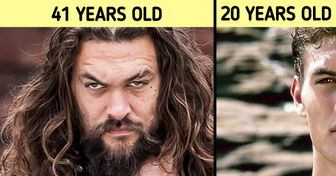
We Imagined What 15 Cartoon Characters Would Look Like if They Were Adults, and Here Are the Results
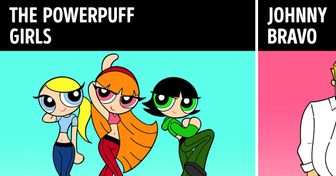
16 People Who Know What the Drama of the Neighborhood Is All About

15 People Who Couldn’t Help but Laugh When Looking at Their Old Photos

10+ Real Stories People Are Afraid to Tell Because No One Believes Them

10 Real-Life Stories That Ended Like a Strange Movie Plot

18 Stories That Prove a Cleaner’s Job Is About More Than Just Dusting

12 Stories That Had More Drama Than a Season Finale

18 Stories That Show Kindness Can Be the Strongest Force of All

My Son Wants to Kick Me Out on the Street to Accommodate His New Family

12 Moments That Prove Kindness Isn’t Weakness—It’s Power Disguised as Empathy
